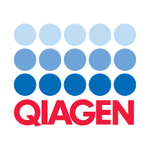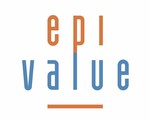


About isv24
We are excited to welcome you back in-person to the 15th International Symposium of Variants in the Genome that will be held 13th - 15th May 2024. The symposium will be preceeded on the 12th May by an optional workshop day. This biennial conference (previously known as the Mutation Detection meeting series) focuses on cutting-edge developments for scanning, sequencing, databasing, and bioinformatics analysis of variants in DNA, RNA, and protein. With technology setting the pace, understanding how variants effect the health of an individual has become crucial and is quickly changing the way genomic data is interpreted. This symposium will also give special emphasis to the capabilities and methods for functional testing and classification of genomic variants related to disease.
Invited leading scientists from around the world and speakers invited from submitted abstracts after peer review will present their research in plenary sessions. The meeting will also include interactive workshops on topics related to clinical interpretation of variants, data collection and variation nomenclature; where you can practice your skills with instructional leaders and scientific professionals. The Symposium of Variants in the Genome provides an excellent platform, motivating participants to share knowledge and network with international experts in all areas of human genetics.
We therefore invite you to submit your abstracts as soon as possible, and encourage you to travel to the beautiful UNESCO World Heritage city of Porto, Portugal to learn and participate at this dynamic meeting.
We look forward to welcoming you all in 2024!
Key Dates
Oral Abstracts Close 26th Feb. 2024
Poster Abstracts Close 31st March 2024
Earlybird Ends 24th March 2024
Accommodation Bookings Close 5th April (unless sold out prior)
Workshop Day
We have organized an optional workshop day on Sunday, May 12th 2024, just before the symposium. Attendees have the flexibility to include this day as part of their symposium registration or opt to attend it separately.
Topics will include:
- The ACMG/AMP classification system and SVI recommendations
- ACMG Variant Cases Basic & Advanced
- HGVS Nomenclature
- & more
A few Keynote Speakers

HPO-based Variant prioritization or clinical use of phenopackets (title TBA)
Peter Robinson, Framington CT, USA
Update on Framework for new ACMG Recommendations
&
Keynote Address: A sea change: from diagnosis to screening
Leslie Biesecker, NIH, USA
Experiences with Long-Read Sequencing (title TBA)
Alexander Hoischen, Nijmegen, Netherlands
ENIGMA guidelines and their impact in clinical application
Sara Gutiérrez-Enríquez, Barcelona, Spain
Single-cell whole-genome haplotyping
Joris Vermeesch, Leuven, Belgium
When the NGS pipeline fails: solving exceptional cases
Johan T. den Dunnen, Leiden, Netherlands
ACMG Variant Classification/Interpretation: solving exceptional cases
Andreas Laner, Munich, Germany
Genome Sequencing in Diagnostics
Christian Gilissen, Radboud, Netherlands
Genotype-first approach to identify associations between CDH1 germline variants and cancer phenotypes: a multicentre study by the European Reference Network on Genetic Tumour Risk Syndromes
Carla Oliveira, Porto, Portugal
Methods and applications for single cell and spacial multiomics
Thierry Voet, KU, Leuven, Belgium
Germline allelic expression imbalance and cancer risk
Ana Teresa Maia, Algarve, Portugal
Chromatin profiling and transcription cis-regulation in pancreas
José Bessa, Porto, Portugal
Non-coding mutations in human brain disorders
Tahsin Stefan Barakat, Rotterdam, Netherlands
& more!

Where?

|
Photo taken outside the hotel |
isv24 will be held at The Axis Vermar Conference & Beach Hotel near Porto, Portugal.
The hotel has ocean frontage.
Porto is well-connected by air from most European capital cities.
The old town of Porto is a UNESCO World-Heritage city.
isv24 may be of interest to:
Expected Participants are people working in a DNA laboratory including clinical diagnostic labs involved in DNA sequencing data analysis.
Expected knowledge - basic knowledge of molecular biology (DNA, RNA, protein), molecular biology lab technologies (esp. sequencing) and genetics. Although human genetics will be heavily covered at this event it is not limited to human genetics so you may submit abstracts related to other organisms.
The language will be ENGLISH. There will be no translation service.
Themes
- Sequencing Technologies/New Methods
- Clinical Applications
- Bioinformatics
- Databases/Variation in Population
- Variant Prioritization/Interpretation
- Large Projects
- Froniers of Applications
- Direct to Consumer
- & more...
Scientific Program Committee

Never miss an Announcement
Subscribe to our mailing list
Yes, I would like to receive email updates. Unsubscribe anytime. For more information see our Privacy Policy below.









